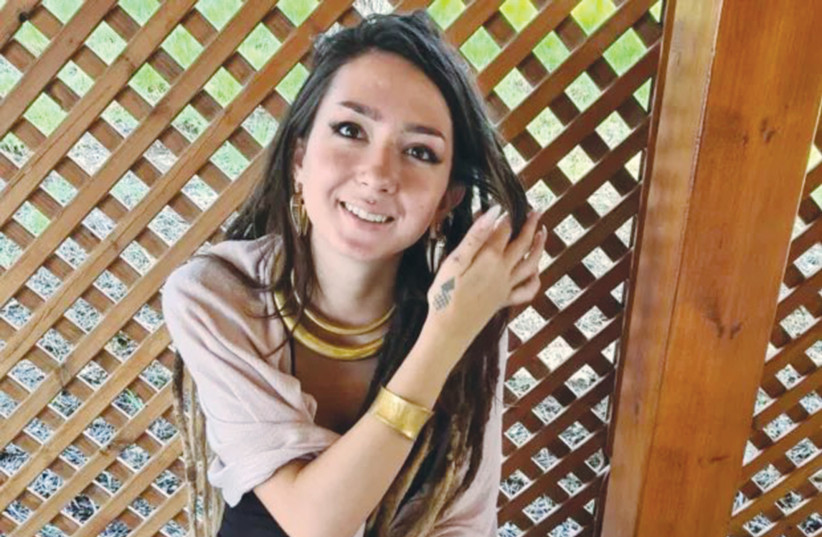The parents of murdered hostage Shani Louk, whose body was found yesterday by IDF soldiers in Rafah seven months after she was abducted from the Nova Music Festival in southern Israel, told the New York Post of their relief now that they can bury their daughter.
Louk, a 23-year-old tattoo artist, became one of the most known hostages after footage of her partially exposed body being spat on By Hamas terrorists circulated on social media.
Earlier this year, a freelance photographer controversially won an award for his photo of Louk in the back of a vehicle driven through Gaza.
“We are lucky that these two pictures were all over the world. One of them is very cruel…I’m happy that my daughter Shani is connected to the picture because the picture shows the light from one side, which is Shani, and the other side of the photo shows militants, which is darkness,” Shani’s father Nissim Louk said. “And I’m happy to have such a kid, you know? God created me just for this purpose…So the people in the world will see what is right.
“The body that we have now is complete and beautiful and looks like she’s alive actually,” Louk told the Post. He claimed that the preserved state of her body was “a miracle.”

“I think she’d been in one of the tunnels which was very, very cold…that’s why the body is complete and beautiful, and the skin is still the same color, you still see the tattoos, it’s amazing,” he theorized.
While other hostage families had held hope that their loved ones may still be recovered alive, Louk’s family was told early after her abduction that she was likely killed, as a fragment of her skull had been found. It was determined that it was not possible for someone to survive this injury.
“The army came and told us that the body of Shani was found and brought back to Israel…we’re happy that she’s back and can bury her properly,” said Shani’s mother, Ricarda Louk. “The body is back, we can bury her. It’s a little bit of relief we know where her body is and that she will be here in Israel buried.”
Ricarda told the Post that a memorial statue was now being developed.
“So we feel she is always with us. We feel her. She is happy to come back to Israel and close the circle. I’m happy to have her close by.”
A message to the world
Nissim said that his daughter’s death, and the photos circulated thereafter, sent a message that “people [need to] wake up and see what happened here, so many innocent, young people celebrating peace and love and music who were really butchered like this in such a way that no other country would have accepted this."
“It’s just horrific," he added, "It’s unimaginable what they did here. Everybody needs to know exactly and inform themselves what really happened.”
The parents also revealed that the photo of what was done to their daughter had inspired soldiers to enlist in the IDF.
“One soldier told me that he went to Gaza to fight after he saw the picture of my daughter because he said, ‘it cannot be, such a thing’, you know?” Nissim recalled.
“[Another] guy I met, a soldier that was wounded, he said, ‘you know, I’m fighting and I’m always thinking about what happened to your daughter,” he added.
